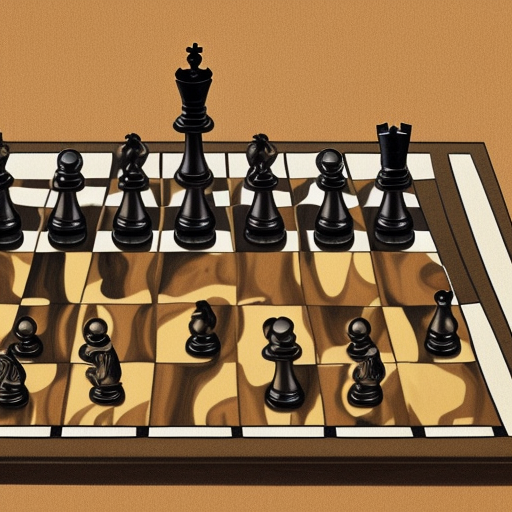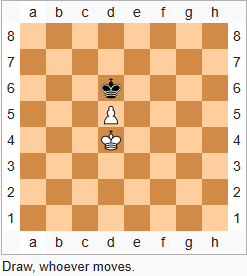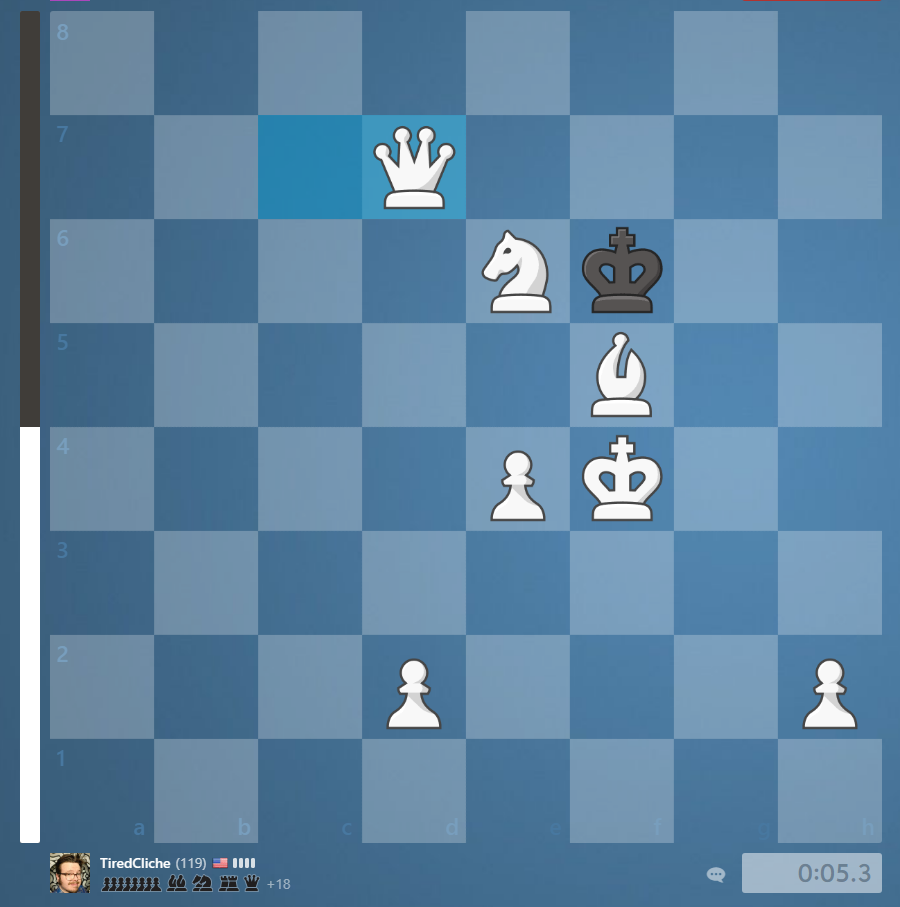
I just started playing chess and several times so far I have almost put myself in mate or didn't notice a mate. I kinda feel like it would be more fun if you could be sneaky and mate your opponent without them noticing and then knock over their king. I also think I would have more fun on the losing end because it sounds thrilling for me to make a move that I thought was good, and then instantly lose because I wasn't observant enough.
However I don't know why the "Mate" rules are in place, so I wanted to ask about it. Are there good reasons for them being in place, or is it just people being like "it's not sporting 🧐 "?
I will resolve to NO if someone explains to me why not using the "mate" rules would make the game worse and they make sense, and YES if it continues to seem like it would be more fun to knock some kings over. PROB if I'm undecided but I'll try to make up my mind.
This is your chance to change my mind.
Close date updated to 2023-02-03 11:59 pm
🏅 Top traders
| # | Trader | Total profit |
|---|---|---|
| 1 | Ṁ59 | |
| 2 | Ṁ36 | |
| 3 | Ṁ14 | |
| 4 | Ṁ11 | |
| 5 | Ṁ7 |
People are also trading
I have to say I'm a little bit disappointed in this market. I am resolving YES because it still seems like it would be more fun to allow people to place themselves in check/checkmate or not notice a check/checkmate.
Here are the reasons people gave as to why to resolve NO:
@GanymedeAI : "For house rules that would probably be fine, but for professional play it makes sense to end on checkmate rather than on taking the king since it would just be prolonging the game one more round."
Well, that's all well and good for professional play, I guess, but professional play seems less fun. They have a lot of rules that seem less fun, I haven't played professionally, but the fifty move rule seems totally unfun, as does the touching a piece rule. I'm sure there are reasons for them, but it doesn't seem like the reasons are about fun. This is a market about fun.
""If the game was about capturing the king, then it would not be forbidden for the king to move to a threatened square. This, in turn, would ruin a lot of endgame tactics involving stalemates (i.e. the "losing" player actively seeking a last ditch defence where all their pieces are unable to move, resulting in a stalemate)."
This is probably the best reason anyone gave, but in the last two weeks I have found that I don't think stalemates are fun. I have drawed a match that I was winning due to me stalemating an opponent- definitely not fun. Two days ago a drawed a match I was losing when an opponent stalemated me, and that was also not fun- my opponent kept blundering for about twenty turns and I just kept moving my king around until they put their queen in the wrong place. Maybe someone enjoys that, or it's more fun if both players know what they are doing, but for me it felt almost like bullying him for not knowing how to checkmate with a queen. It was easy for me, hard for him. If you're in a losing position it should be at least as mentally taxing for you as for the player who is winning!
@Boklam said "I don't think the change would have a significant impact on the level of fun. Once you get past the "total beginner" stage, you will be able to see checkmates (and checks) at a glance." Maybe! But I'm at the total beginner stage, playing other total beginners, and the most fun part of the game is blindsiding people who don't notice one of their other pieces is threatened. I have won multiple games because people forgot about their rooks, for instance. It is also thrilling on the losing side, I have often moved a piece into a place where it was unprotected and I didn't notice that the opponent's piece could instantly take my piece. My argument is that it would be more fun if you could also do this with the king.
@CarloAttubato said "lots of endgames have deep theory from the fact that stalemate is a draw." Undeniably true, but as I said above, stalemating doesn't seem fun from either side. Maybe it's more fun to draw than to lose? But you didn't make an argument for that, and in my opinion, if you're in a place where you can only draw, you deserve to lose. Drawing like that feels cheap. If your opponent can't figure out how to win you can agree to a draw.
@Boklam finally writes "Actually I just realized king and pawn vs king (in many starting positions) is one such [examples of endgames whose outcomes would change]" Looked it up, "Chess/The Endgame/Pawn Endings - Wikibooks"

From this position it claims that it is a draw, but that's only with perfect play. I ran it myself and white can also win here if black screws up. However, if you take away the mating rules, then black can also win if white screws up. This would have to be an absolutely boneheaded screwup, basically focusing so much on pawn promotion you move your own king into danger- but I've seen similarly boneheaded moves before! It just seems more fun to me to have a game where technically, either side can win rather than black can either draw or lose and white can only win or draw. Without mate, from this position, technically either side can still win or lose! That's more fun.
I hope I have sufficiently proved that I took all your arguments seriously, I honestly still do think that mating rules are less fun. Therefore I am resolving YES.
@ForrestTaylor It comes with practice...
Here's a tip for these sorts of positions: make sure every move is a check. After all, a check can never be a stalemate!
I don't think the change would have a significant impact on the level of fun. Once you get past the "total beginner" stage, you will be able to see checkmates (and checks) at a glance.
(BTW, Ganymede pointed out that for experienced players, this is a significant change to the rules of the game. In practice, aside from blunders, I think it would very, very rarely affect the outcome on a game.)
@Boklam no, lots of endgames have deep theory from the fact that stalemate is a draw. on this proposal, stalemate is decisive win for the stalemate.
@CarloAttubato Just to help me out, could you give some examples of endgames whose outcomes would change?
Actually I just realized king and pawn vs king (in many starting positions) is one such...
@MartinRandall I'm fine with drawing in soccer, but I do think it's boring in chess. In soccer, if a team is way down, it doesn't affect their ability to perform (except psychologically). In chess, the player with an extreme material disadvantage is indeed at a disadvantage, until the end, where you can still get it to a draw. This seems weird. It's like if there was a rule in boxing where if the clearly losing fighter doesn't actually get knocked out, it's still a draw. You'd just get matches where once a person loses they just keep trying to run away. Which I guess would be pretty funny to watch but it's not as interesting
@VinceVatter I respect your argument, and I can't say I feel totally differently considering that for my entire life minus one day I have been nearly completely apathetic towards chess.
However, I should be clear that this market is questioning whether mateless chess would be more fun, not whether it would be fun. E.g., if I come to decide that mateless chess is as fun as a toothache, and standard chess is as fun as getting my teeth drilled sans anasthesia, the market will resolve YES.
@MartinRandall I'm interested in buying this but it seems like people are saying the servers are dead?
For house rules that would probably be fine, but for professional play it makes sense to end on checkmate rather than on taking the king since it would just be prolonging the game one more round.
Also, from a post I have saved for this exact question:
"If the game was about capturing the king, then it would not be forbidden for the king to move to a threatened square. This, in turn, would ruin a lot of endgame tactics involving stalemates (i.e. the "losing" player actively seeking a last ditch defence where all their pieces are unable to move, resulting in a stalemate)."
@GanymedeAI Well, people can resign anyway. I don’t buy the endgame thing so much. Removing mate would just move the battlefield from stalemate defenses (a frustrating way to lose - though a glorious way to win, see Eric Rosen) to stalemate offenses, which are also interesting but go unrewarded by current chess.
Other benefits: Mate rules make chess more complicated to explain. They also make chess less generalizable, as evidenced by the fact that many variants do not have mate rules.
